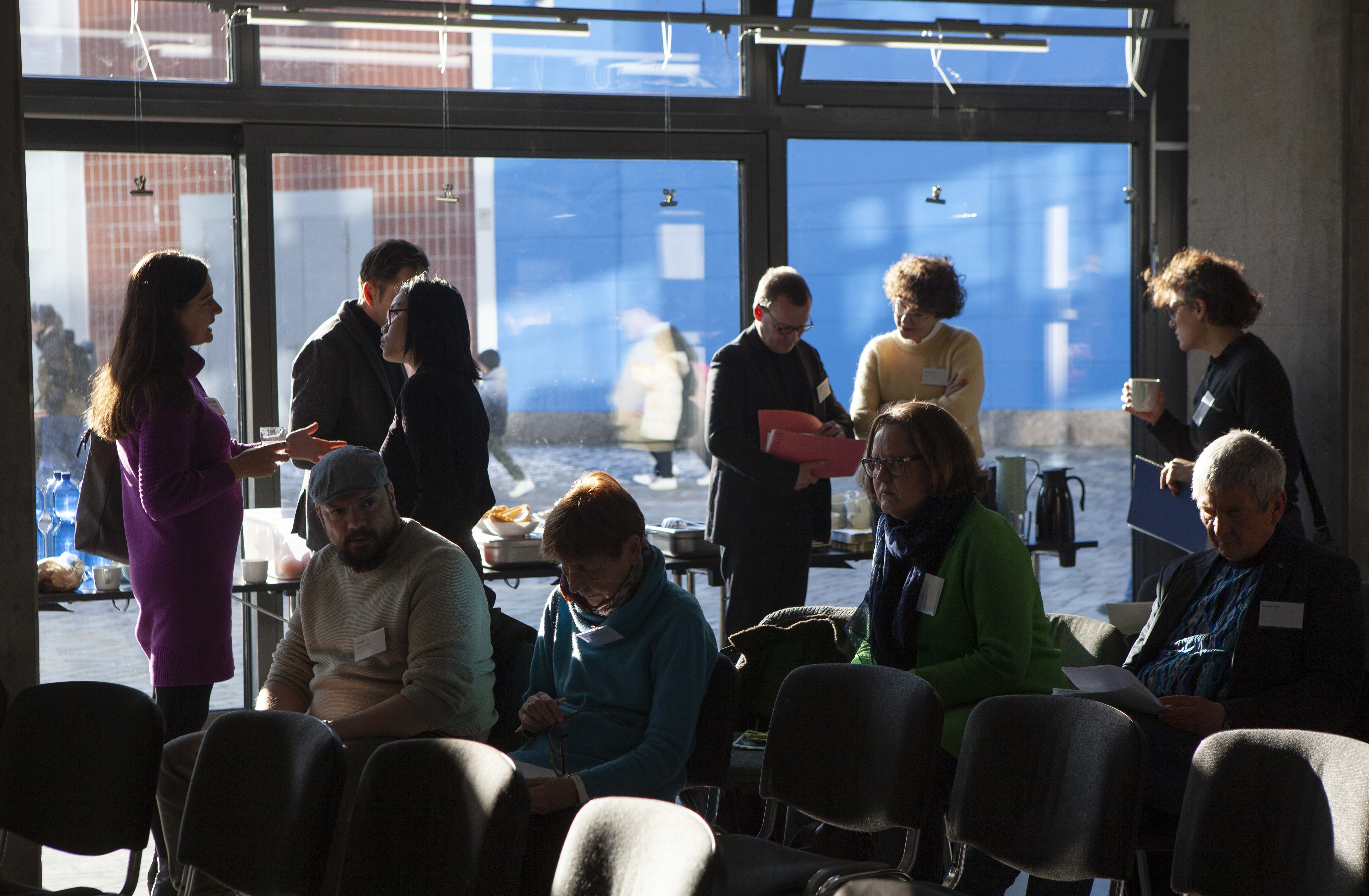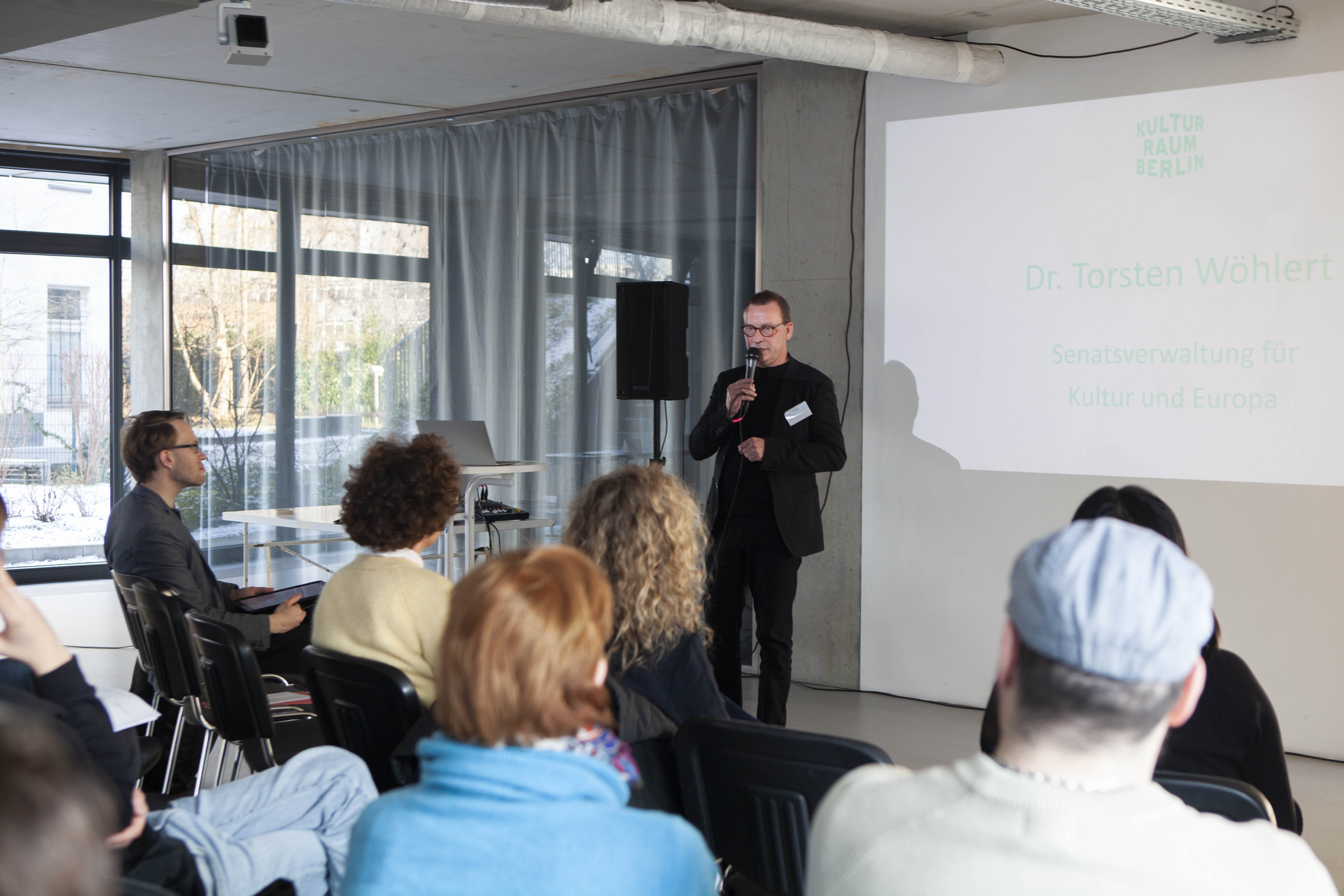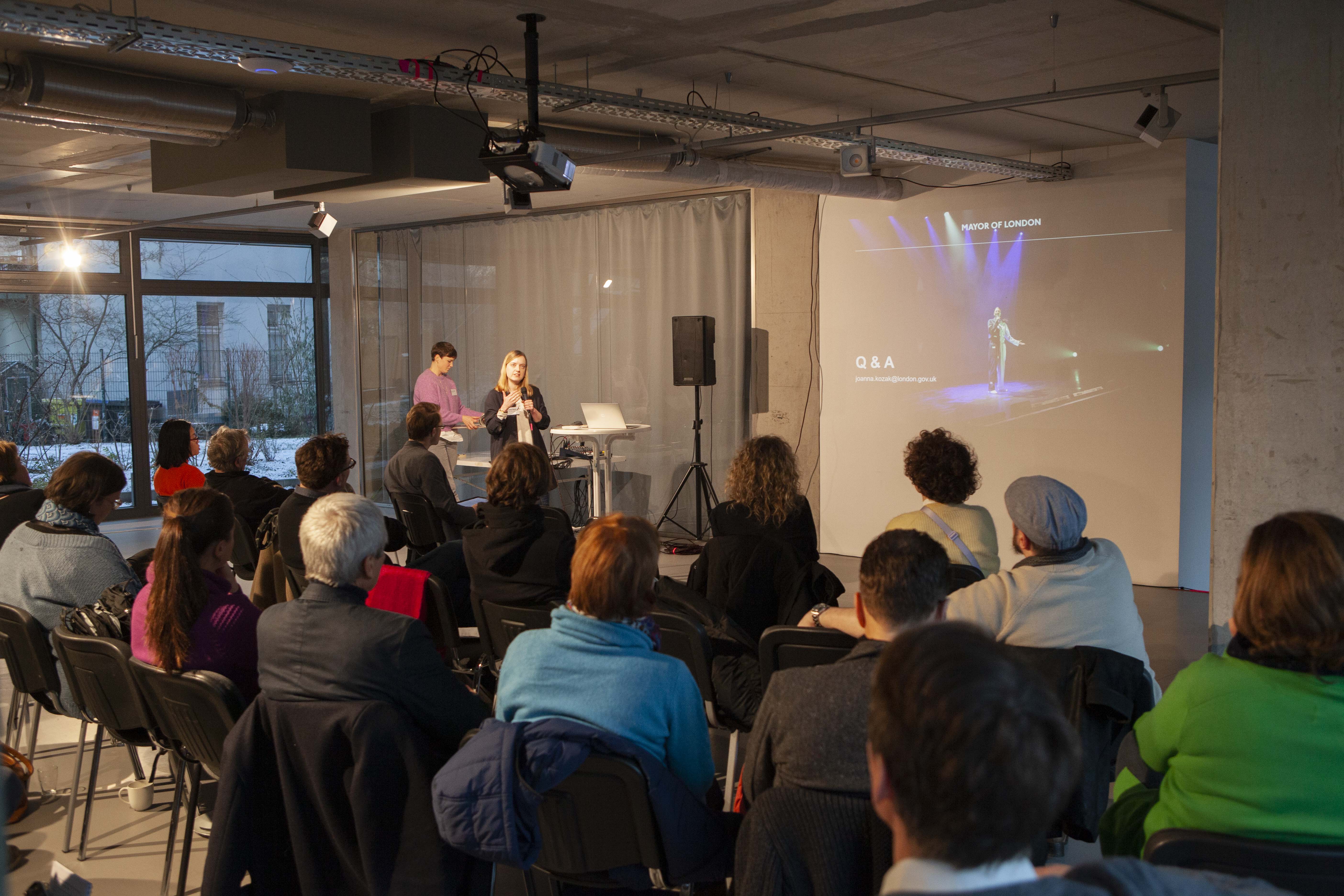Kulturkataster
An innovative mapping tool to save cultural spaces
Update September 2025: The Kulturkatasteris live!
How can a browser-based tool help both experts in the administrations of a city and at the same time artists and actors of cultural associations to secure threatened cultural spaces in their city and to open up new ones?
On behalf of the Kulturräume Berlin gGmbh and for the Senate Department for Culture, we have been dealing with this exciting question and its profound implications for several months:
On the basis of the demand formulated in the guidelines of government policy for
for a cultural cadastre for Berlin, Kulturraum gGmbH was commissioned to develop a
of a corresponding concept. Since fall 2022, the Studio for
has been supporting the preparatory work process with extensive research and the planning of workshops.
workshops to support the preparatory work process. The concept for a Berlin
cultural cadastre is to show potentials for preventing the loss of cultural sites in the short
cultural locations can be prevented in the short term and strategic measures for the
activation of the city's potential for cultural use. In doing so
how the systematic inventorying of cultural sites can be supported by a data-based
cultural sites by means of a data-based planning instrument enables the interlinking with important
important comparative data of urban development, such as e.g.
Rent development, demographic development, development planning, etc.
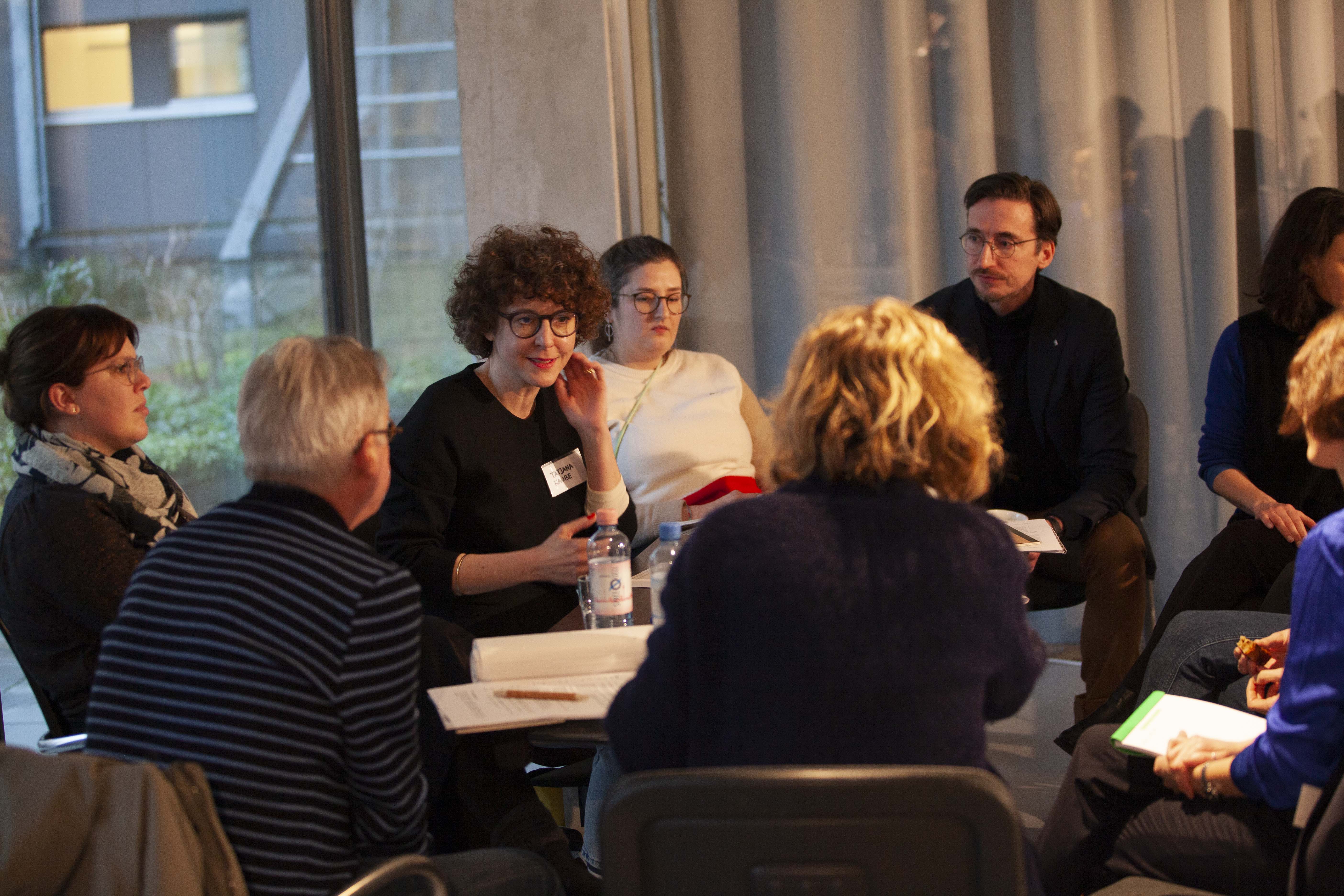
The basis for the preparation of a conceptual design that focuses on the aforementioned
potentials mentioned above, will be formed by extensive research in November and
December 2022 on already existing national and international projects for the
cartography of cultural sites in urban and regional areas. After an initial
of a total of 68 researched case studies, a selection of 10 projects was identified and
projects was identified and subjected to a detailed analysis. In addition to publicly
data on the projects, selected short interviews with the initiators and representatives of the
initiators and representatives of the supporting institutions of the corresponding cultural
cultural cadastre provided in-depth information.
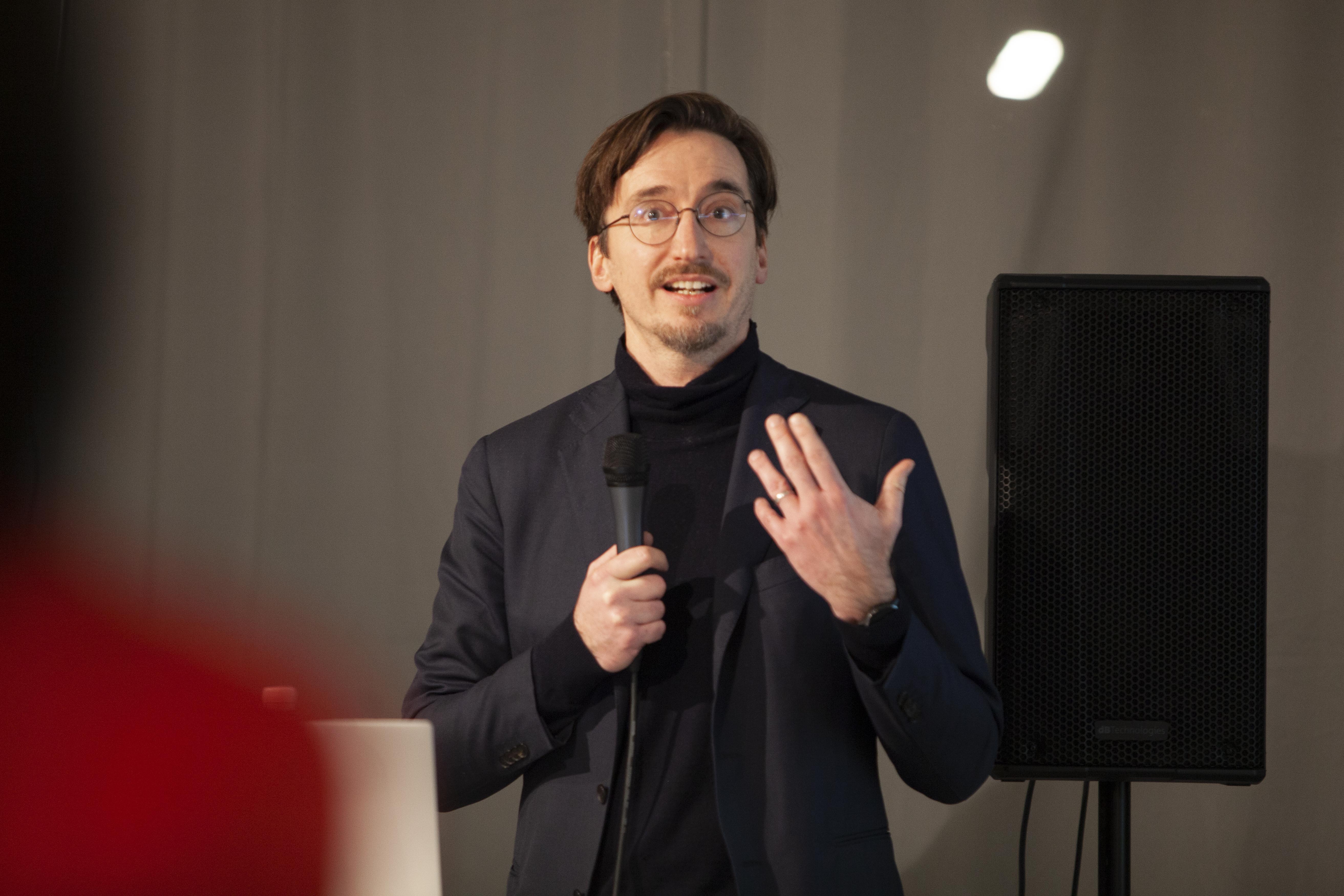
Our extended team with Xenia Kitaeva, Susanne Wagner and Phil Koch was able to develop a really impressive concept out of the extremely detailed research and workshops. This is an opportunity for Berlin to provide decision-makers in the Senate offices and artists, initiatives and representatives of associations with a convenient tool for securing cultural spaces and the efficient, sort-oriented development of new spaces quickly, securely and very efficiently.
